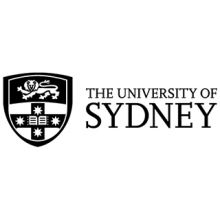“Wage theft” in universities is not an “aberration” but core to the business model, and casual academics experience the worst of it, an Australian parliamentary inquiry has heard.
Casually employed academics told a Senate economics committee that the “extensive” underpayment of their colleagues ranged from obligations that were “required and not remunerated” – such as attending staff meetings on their own time – to the routine misclassification of lectures and tutorials as lesser-paid activities.
Anastasia Kanjere, convener of the La Trobe Casuals Network, said the “most insidious” form of underpayment stemmed from the industry-wide practice of paying by the “piece” instead of the hour. Pay rates were set by departmental managers “with a keener eye on the budget than the nature or value of the work”, she said. “The value of all casual teaching labour is pre-determined…nearly always in ways that underestimate the time it takes.
“We cannot rely on universities to voluntarily correct their employment practices. University managements know about the wage theft taking place in their institutions. It contributes to the cheapness of academic labour and – along with the fees extracted from international students – has been enabling university surpluses in an underfunded sector for years.”
The 10 March hearing, which focused on higher education, was part of a broader inquiry into underpayment throughout Australia’s workforce. The National Tertiary Education Union believes at least one-third of public universities underpay their staff.
Yaegan Doran, of the University of Sydney (USyd) Casuals Network, said it was no surprise that universities were “defensive” over such claims. “Casualisation is…remarkably cheap for them compared to employing permanent staff,” he said. “For anyone to raise that they are consistently underpaying casual staff is to very much push at the heart of their entire financial model.
“They underpay us, and they know they underpay us. If they did have to pay us correctly, they might have to employ us permanently – and that is exactly what they don’t want to do. We live in fear of speaking up because we suddenly lose our jobs.”
Siobhan Irving, of the Macquarie (MQ) Casual Collective, said fear was not the only thing keeping staff quiet. “We don’t want to complain too loudly because we don’t want to throw our managers under the bus,” she said.
“Maybe our head of department is actually a decent person…doing the best they can [with] no budget to pay us more. This is particularly pertinent this semester because of the Covid-related budget restraints.”
Dr Irving cited the “mundane” example of emails. “Some [departments] pay their casuals for writing emails; some don’t. Some used to but have decided to stop now that there are Covid-related budget restraints. Unfortunately, the work of email communication with students remains even if we are not paid for it.”
The Australian Higher Education Industrial Association (AHEIA) emphatically denied systematic underpayment of academics. Executive director Stuart Andrews said that in almost 10 years at the organisation’s helm, he had been involved in just three cases where allegations of underpayment had been brought before the Fair Work Commission – with at least one of the claims rejected.
And while the Fair Work Ombudsman (FWO) was looking into alleged underpayments by universities, this was largely based on universities “self-reporting” discrepancies after commissioning external reviews of their own payroll systems.
“Universities [are] very large, complex organisations,” Mr Andrews said. “Our members take great offence to the suggestion that universities deliberately engage in wage theft or gaming the system. The suggestion that as a business model, universities are deliberately underpaying their staff – nothing could be further from the truth.”
The University of Sydney said it had become aware of potential underpayments following a routine internal review. It commissioned an external inquiry and “made a disclosure” to the FWO, according to acting vice-chancellor Stephen Garton.
“Any errors were completely unintentional,” he said. “The university is committed to full remediation and will make back payments including superannuation and tax, with interest.”
He said Sydney was conducting a separate investigation into claims that casuals were allocated insufficient hours and forced to do unpaid work. “I don’t know yet whether it’s a systemic issue,” he told the committee. “It requires investigation, and we are undertaking that investigation.”
Professor Garton rejected suggestions that the time needed to prepare lectures or assess students’ work was routinely underestimated. “These…rates have been in place for decades. They are what we have negotiated with the staff unions.”
Register to continue
Why register?
- Registration is free and only takes a moment
- Once registered, you can read 3 articles a month
- Sign up for our newsletter
Subscribe
Or subscribe for unlimited access to:
- Unlimited access to news, views, insights & reviews
- Digital editions
- Digital access to THE’s university and college rankings analysis
Already registered or a current subscriber? Login











